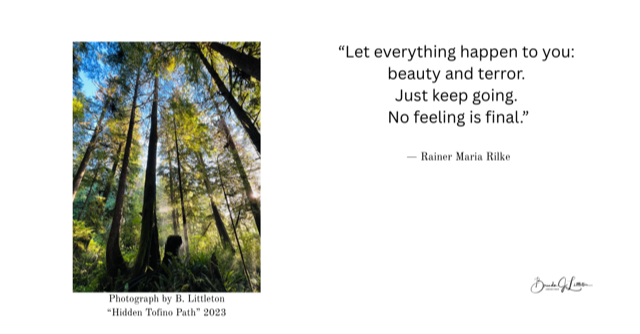The Paradox of Being Human: Befriending the Trickster Within
Let’s talk about what it means to feel completely overwhelmed by life—when the pressures mount, the answers aren’t clear, and the anxiety keeps buzzing like a light that won’t switch off. Most of us live with layers of stress no one else sees—balancing caregiving and careers, grief and gratitude, love and loss. And sometimes it feels like the world demands we choose a side: Are you fine or falling apart? Are you strong or struggling? Are you healing or still broken?
The Paradox of Being Human
Here’s the thing: life isn’t either/or. It’s both/and. And if you’ve ever felt confused, conflicted, or like you’re walking contradictions inside your own skin, then congratulations—you’re human.
In the language of Jungian psychology, this experience of contradiction and tension is embodied in the archetype of Mercurius—a shapeshifter, a paradox, a trickster. Jung wrote:
“Mercurius is the god of the unexpectedly helpful coincidence, of healing in the midst of pain, of the inescapable contradictions that must be endured if one is to be transformed.”
— Carl Jung, CW 14, para. 259
What does that mean in real life? It means that the parts of us we try to hide or fix are often the very places where healing can sneak in. That the moments when we’re the most unsure are actually doorways to new understanding. That confusion, grief, even anger—they aren’t signs something is wrong with you. They’re signs that something real is happening.
Marie-Louise von Franz, one of Jung’s closest collaborators, expanded on this idea:
“The paradox is one of our most valued spiritual possessions… only the paradox comes anywhere near to comprehending the fullness of life.”
— Marie-Louise von Franz, “The Interpretation of Fairy Tales”
So many of us were taught to seek clarity and resolution, to tie everything up in a neat bow. But what if we stopped demanding that life make immediate sense? What if we let things stay messy, uncertain, unresolved… and sacred?
Let’s be honest: modern life offers very few clean solutions. We face chronic uncertainty—climate anxiety, relational breakdowns, job instability, global grief. We’re often told to “just breathe,” “stay positive,” or “trust the process”—but that can feel like spiritual gaslighting when your nervous system is on fire.
That’s why it’s so powerful to name the truth: life is complicated. And we don’t need to be fixed—we need to be witnessed.
James Hillman put it this way:
“Psychology ought to make room for all our parts, including the contradictory ones. The soul doesn’t demand coherence, it demands depth.”
— James Hillman, “The Dream and the Underworld”
Depth isn’t something we achieve by tidying up our feelings or turning them into bullet points. Depth is something we inhabit when we say, Yes, this too. I don’t have to like it, but I will sit with it. I will feel what is here.
And that brings us back to Mercurius—not as some esoteric symbol, but as a lived experience. Mercurius teaches us how to dance with opposites, how to stop chasing closure, and how to hold presence in paradox. Not just when it’s poetic, but when it’s painful.
Here’s a practice: the next time you feel pulled in opposite directions—when you’re torn between quitting and staying, grieving and celebrating, resting and pushing through—try this:
Pause. Just for a breath. Let the contradiction be there.
Name it. “I’m feeling both exhausted and grateful. I want to give up and keep going.”
Stay curious. Don’t label it wrong or broken. Let it be both.
David Whyte reminds us:
“The antidote to exhaustion is not rest. It’s wholeheartedness.”
— David Whyte, “Crossing the Unknown Sea”
Wholeheartedness doesn’t mean perfection. It means showing up—with all your contradictions, with the tenderness of your ache and the boldness of your hope.
And if that makes you uncomfortable? Good.
Getting comfortable with the uncomfortable is where the transformation lives. In fact, the more we try to avoid discomfort, the more trapped we become. But when we face it with gentleness, we reclaim our agency.
As Rainer Maria Rilke once offered:
“Let everything happen to you: beauty and terror. Just keep going. No feeling is final.”
— Rainer Maria Rilke, “Go to the Limits of Your Longing”
Let that land. No feeling is final. Not despair. Not joy. Not confusion. They’re all part of the dance.
So let’s not bypass the messy parts. Let’s not pretend that we’re okay when we’re not. Let’s make space for the trickster, for the divine interruption, for the strange grace of Mercurius whispering, “Stay awhile. There’s more here for you.”

